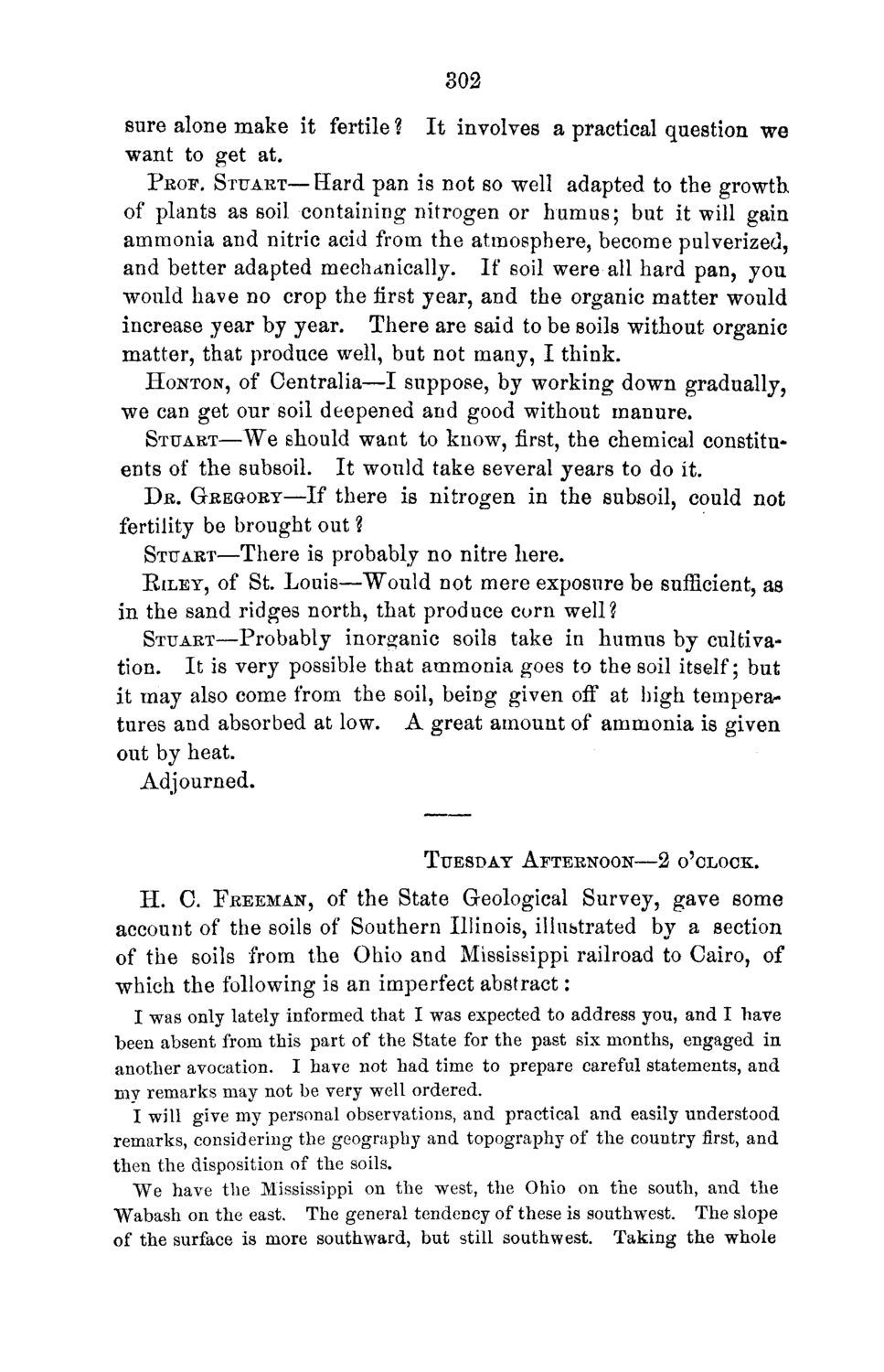| |
| |
Caption: Board of Trustees Minutes - 1870
This is a reduced-resolution page image for fast online browsing.

EXTRACTED TEXT FROM PAGE:
802 sure alone make it fertile ? I t involves a practical question we want to get at. PROF. STUART—Hard pan is not so well adapted to the growth of plants as soil containing nitrogen or humus; but it will gain ammonia and nitric acid from the atmosphere, become pulverized, and better adapted mechanically. If soil were all hard pan, you would have no crop the first year, and the organic matter would increase year by year. There are said to be soils without organic matter, that produce well, but not many, I think. HONTON, of Centralia—I suppose, by working down gradually, we can get our soil deepened and good without manure. STUART—We should want to know, first, the chemical constituents of the subsoil. It would take several years to do it. D R . GREGORY—If there is nitrogen in the subsoil, could not fertility be brought out ? STUART—There is probably no nitre liere. RILEY, of St. Louis—Would not mere exposure be sufficient, as in the sand ridges north, that produce corn well? STUART—Probably inorganic soils take in humus by cultivation. It is very possible that ammonia goes to the soil itself; but it may also come from the soil, being given off at high temperatures and absorbed at low. A great amount of ammonia is given out by heat. Adjourned. TUESDAY AFTERNOON—2 O'CLOCK. H. 0 . FREEMAN, of the State Geological Survey, gave some account of the soils of Southern Illinois, illustrated by a section of the soils from the Ohio and Mississippi railroad to Cairo, of which the following is an imperfect abstract: I was only lately informed that I was expected to address you, and I have been absent from this part of the State for the past six months, engaged in another avocation. I have not had time to prepare careful statements, and my remarks may not be very well ordered. I will give my personal observations, and practical and easily understood remarks, considering the geography and topography of the country first, and then the disposition of the soils. We have the Mississippi on the west, the Ohio on the south, and the "Wabash on the east. The general tendency of these is southwest. The slope of the surface is more southward, but still southwest. Taking the whole
| |